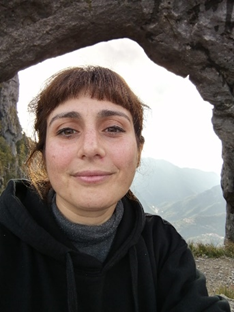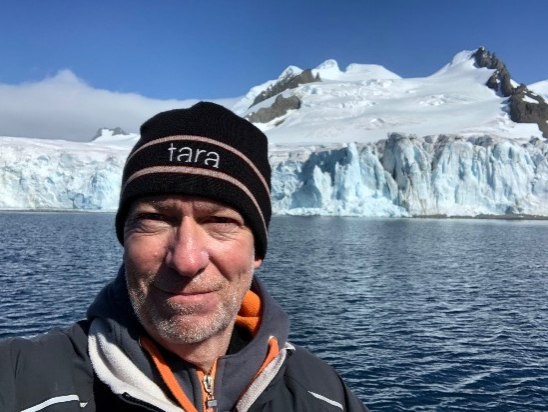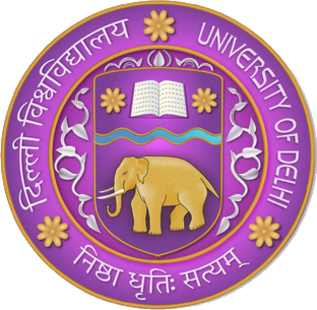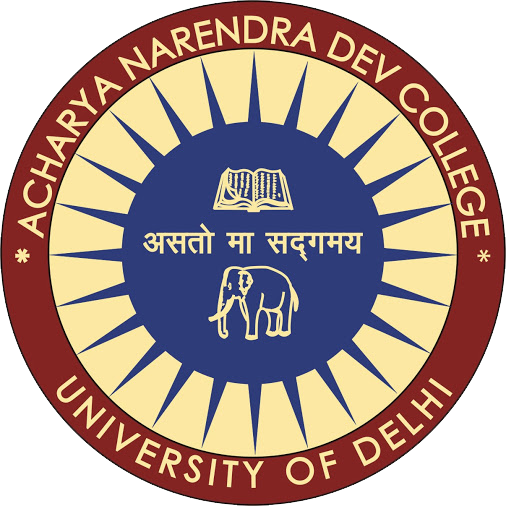
Department of Microbiology, School of Data Science and Computational Thinking, Stellenbosch University
Thulani Makhalanyane is a Professor in the Department of Microbiology and the School of Data Science and Computational Thinking at Stellenbosch University. He earned his Ph.D. at the University of the Western Cape in 2013 and his research focuses on understanding the ecology of microbial communities in extreme environments. He has coauthored over 80 publications in leading journals including Nature, Science, PNAS and The ISME Journal. Thulani serves on several editorial boards and is currently serves as Editor in Chief for Reviews and Perspectives of The ISME Journal and Senior Editor at mSystems. He also serves on national and international panels representing South Africa in bilateral discussions. Thulani was elected to the board of the ISME Society in October 2018. He is the Director of ISME’s Ambassador Program and is a member of the Executive Advisory Board.

Laboratorio de Protozoología, Departamento de BiologíaComparada, Facultad de Ciencias, Universidad Nacional Autónomade México. Mexico
Dr Rosaura Mayén-Estrada, is a researcher in Facultad de Ciencias, Universidad Nacional Autónoma de México, working with free-living and epibiont protists, mainly attached to aquatic plants and invertebrates. The main goals of the projects are taxonomic and ecological aspects, especially of peritrich ciliates. She is teaching Protozoology as well Animal Biology, for undergraduate courses. She has many research articles and chapters to her credit and has presented her research work in various conferences.

Department of Zoology, Ramjas College, University of Delhi
Dr. Helianthous is alma mater of University of Delhi. She did B.Sc. (H) Zoology from Hans Raj College, Masters and Ph.D. from University of Delhi During Ph.D, her work was focused on deciphering the characterization and comparative genomics of sphingomonad species isolated from hexachlorocyclohexane (HCH) contaminated soil. Her Ph.D. specialization is in molecular biology and bioinformatics. She has performed comparative genomics of different bacterial genus such as Novosphingobium, Sphingopyxis, Bacillus and Paracoccus which are environmentally and industrially important genera. Recently, she was involved in comparative genomics of 95 SARS CoV2 genomes which revealed phylogeographical distribution of the virus. In another study, she deciphered the role of mutations in determining the potential molecular drug targets (MDT) for Mycobacterium tuberculosis by performing host-pathogen protein-protein interactions.
She authored 27 research papers in peer reviewed journals and 7 books/book chapters. Currently, she is working on determining marker and highly specific genes in Sphingobium indicum B90A for efficient tracking of this organism in bioaugmentation in-situ field trials.

Department of Zoology, Gargi College, University of Delhi
Dr. Jasvinder Kaur is currently working as an Assistant Professor in the Department of Zoology at Gargi College, University of Delhi since 2014. She completed her graduation from Acharya Narendra Dev, University of Delhi in 2004 and M. Sc Zoology from Department of Zoology, University of Delhi in 2009. She was a meritorious student and secured university positions in college throughout her education. She specializes in the field of Environmental Biotechnology and Bioonformatics. During her doctoral research, she worked on Genomic Analysis, in-vitro Protein Refolding and Taxonomic Characterization of Sphingomonads. Her current research work is in the field of Drug repurposing.
She has 30 research papers in peer reviewed International Journals of repute to her credit. She has participated and presented her work in several National and International Conferences/ Symposia/ Workshops etc. She has co-authored 14 e-chapters in Biotechnology and Molecular Biology under the MHRD Project National Mission on Education (NME) and post-graduate pathshala, UGC under NME-ICT. She has also co-authored a book the Bioinformatics Manual for undergraduates.
Additionally, she has been actively involved in conducting & organizing several workshops and conferences for the students and also Faculty Development Programs for the teachers.
She also holds several academic and administrative positions within her institution.

Department of Zoology, University of Delhi
Dr. Pushp Lata currently serves as an Assistant Professor in the Department of Zoology, University of Delhi situated in North campus Delhi India. She completed her undergraduate studies at Kirori Mal College, University of Delhi, from 2004 to 2007, and her postgraduate studies in Zoology at the Department of Zoology, University of Delhi, from 2007 to 2009, with a specialization on Cell and Molecular Biology. She completed her molecular biology doctorate at the University of Delhi between 2009 and 2013. She engaged in the sequencing of genomes for economically significant bacteria, such as Sphingobium indicum B90A and Sphingobium lucknowense strain F2T. Additionally, she conducted a metagenomic diversity analysis of soil gradients contaminated by HCH, contributing significantly to the understanding of microbial communities in such environments. Notably, her work played a key role in isolating new bacteria from HCH-contaminated soil, with noteworthy discoveries including Flavobacterium ummarensiens and Pontibacter indicus.
She has researched how the bacterial community and lin genes alter throughout the Biostimulation and Bioremediation of soil contaminated with HCH. She has been engaged in metagenomic research on a hot spring in Manikaran and isolated noval bacterium Thermus parvatiensis, India, which is perched atop the Himalayan Ranges. She has also involved in upscaling of Rifamycin production from strain Amycolatopsis mediterranei. She has contributed to over Nineteen research publications published in reputable international journals. Additionally, Dr. Lata has added three chapters to her renown on a national and worldwide scale. She has spoken at numerous conferences as an invited speaker and taken part in over 20 conferences and workshops

Project Assistant, H2020-MSCA-RISE "NGTax", Pisa University, Italy
Dr. Serra is a researcher of Biology Department in Pisa University, where she carried out her PhD on biodiversity of Ciliates and their symbionts from the Indian subcontinent. She developed the idea of the "next generation taxonomy" and actively contributed to write funded projects, such as the H2020-MSCA-RISE "NGTax" project, of which she became the Project Assistant. She has worked in the field of ciliate biodiversity, systematic and symbiosis for ten years.

IBENS, Paris
Chris Bowler is research director at the CNRS and director of the Plant and Algae Genomics Laboratory at the Institut de biologie de l'École normale supérieure in Paris. He received his PhD from the University of Ghent in Belgium, followed by postdoctoral studies at the Rockefeller University in New York. In 1994 he established his own laboratory working on signaling in plants and marine diatoms at the Stazione Zoologica in Naples, Italy, and in 2003 he took up his current position in Paris. He has been a member of EMBO since 1995, received the CNRS Silver Medal in 2010, ERC Advanced Awards in 2012 and 2018 and the Grand Prix Scientifique de la Fondation Louis D de l'Institut de France in 2015. In 2016-2017 he was a Fellow at the Radcliffe Institute of Advanced Studies at Harvard University, USA. In 2018 he was elected member of the French Academy of Agriculture, and during the academic year 2020-2021 he held the annual chair as Professor in biodiversity and ecosystems at the Collège de France. His main research interest is the understanding of the response of plants and marine diatoms to environmental signals, through functional and comparative genomics. Since 2021 he is the scientific director of the Tara Oceans project to explore the biodiversity, ecology and evolution of plankton in the world's ocean. In 2023 he was elected member of the Accademia dei Lincei in Italy.


